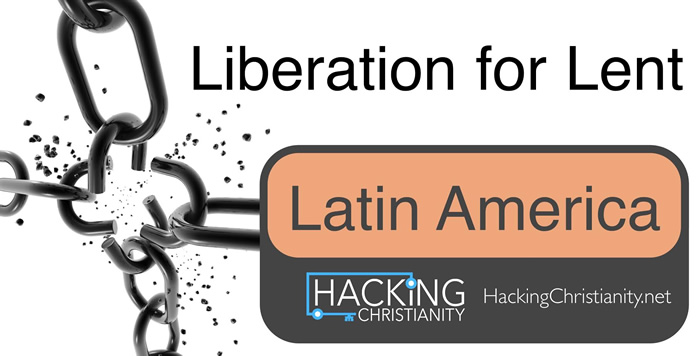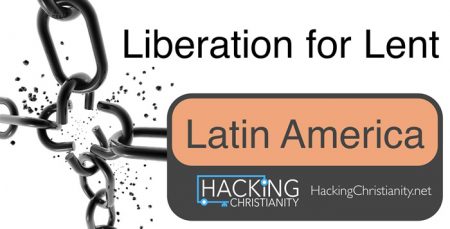Liberation Theology as conceived by one of its founding sources in Latin America and a close look at Gustavo Gutierrez.
Latin American Theologies of Liberation
“The contextual starting point of a ‘theology of liberation’ is the historical situation of domination experienced by the peoples of the Third World.” This simple statement by Peruvian theologian Gustavo Gutiérrez lays out that liberation theology is done by people who are not part of the dominant political or economic classes in their context. Their experience at being in the minority–and in most cases, the abused majority in numbers by a minority in numbers with a majority of power–leads to this specific type of theology.
One key aspect of Liberation theology as expressed by Latin American sources is that “theology is contextual” meaning that the minority experience gives a unique flavor to liberation theology. In the article linked below, Gustavo Gutierrez states why this contextual theology is important:
I am firmly convinced that poverty—this sub-human condition in which the majority of humanity lives today—is more than a social issue. Poverty poses a major challenge to every Christian conscience and therefore to theology as well.
People today often talk about contextual theologies but, in point of fact, theology has always been contextual. Some theologies, it is true, may be more conscious of and explicit about their contextuality, but all theological investigation is necessarily carried out within a specific historical context. When Augustine wrote The City of God, he was reflecting on what it meant for him and for his contemporaries to live the Gospel within a specific context of serious historical transformations…
Like any other way of doing theology, liberation theology is linked to a particular historical moment. Now we can ask ourselves: have the historical circumstances changed? Certainly, it is true that many important events have taken place over the past decades and that the political climate is very different from that of the 60’s and 70’s. But the situation of the poor has not changed fundamentally. As long as there is a group of Christians trying to be faithful in these circumstances, a group trying to follow Christ among the poor, we will find something like liberation theology.
Even though it is common to refer to liberation theology in the singular, we are witnessing several new expressions of this theology in different contexts and continents—North America, Central and South America, Africa and Asia. Each of these theologies has a particular point of view, but they also have much in common, particularly a concern for the poor and excluded. Liberation theology revolves around this attention to the plight of the poor.
I wonder then if there is no such thing as a white-washed orthodoxy that is not contextual–rather, each comes from a specific context. Naming that reality allows for people from diverse experiences (and even majority class people) to converse on this in common: their experience of God in their community context shapes their theology.
Free Reading
Each week we feature a free online resource to read. Some will be blog posts, some short articles, and some more academic papers. We will try to offer more than one when available, but know the best expressions of these theologies are often behind paywalls or in books alone.
Today’s reading is an interview with helpful Q&A about liberation theology as known by one of its theologians in Latin America:
- Remembering the Poor: An Interview with Gustavo Gutiérrez (Gustavo Gutiérrez, O.P.)
Further liberation theology people to consider reading from Latin America include: Miguel de la Torre, Elsa Tamez, Marcella Althaus-Reid, Jon Sobrino, Leonardo Boff, Maya Rivera, Ivone Gebara. Who else would you add to this list?
Questions to consider
- Why is poverty so central to the Latin American perspective on liberation theology?
- Is there a non-contextual form of Christianity that contextual theologies react against–or is it all contextual? What does “contextual” mean to you?
- Gutiérrez ends with hope and its centrality to liberation theology. What under-girds this hope when the societies that evoke liberation theology are widely disparate between the rich and the poor?
Sound off on those in the comments. Try to include the number so we know which you are responding to!
Going Forward
Thoughts?
Thanks for reading, commenting, and your shares on social media.



To the question of the language of “preferential option for the poor” that Gutierrez elaborated in his article:
What would be a better word than option? (See his discussion in the article.)
The best replacement that I’ve come up with is “preferential mandate for the poor.” Any other ideas?
I like the word “mandate”…and other words to note that its not “optional” to consider the poor…
1. I think that this question is quite historically based. At the point of origin in Latin American, class divides were not only severe, but were also violent. Speaking of a contextual theology, that was what was most relevant to the current context.
But also, let’s note that class and economic status is one of the few aspects of identity that functions basically the same today as in Biblical times. Whereas I would need to do some translation to discuss what the Bible says about racism, the Bible talks explicitly about economics and poverty.
2. There are no non-contextual forms of theology, only theologies that refuse to acknowledge their context. Since the Western theological norm is straight White male, theologies written from that perspective can easily assume that they are just presenting a “non-biased” or “objective” perspective.But really, they are just showing the extent to which they do not understand socialization and internalization, and how societal norms shape “normative” persons as well.